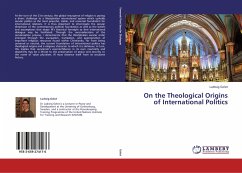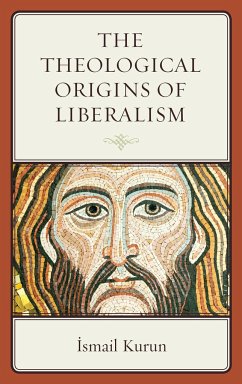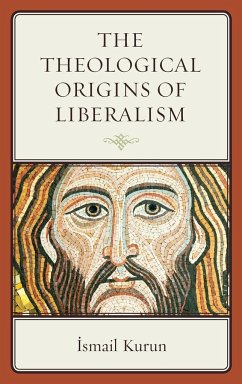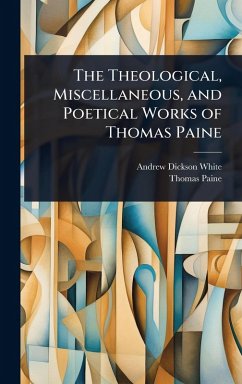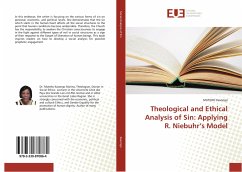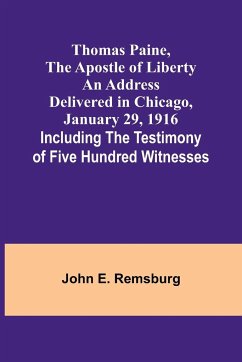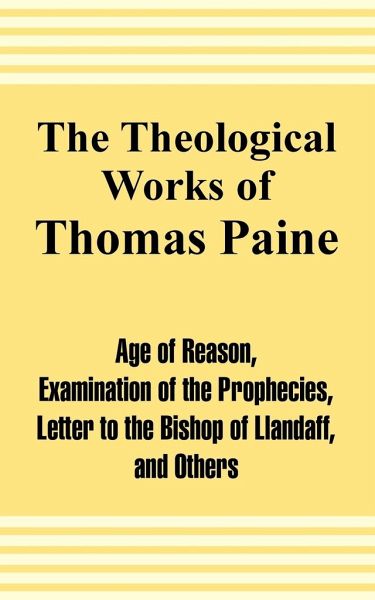
Theological Works of Thomas Paine, The
Versandkostenfrei!
Versandfertig in 1-2 Wochen
25,99 €
inkl. MwSt.

PAYBACK Punkte
13 °P sammeln!
Thomas Paine's "theological works," including his lengthy essay on "The Rights of Man." There are several long essays in this volume, along with copies of letters to Lafayette and others that were an important part of Paine's ongoing dialogue on morality, government, and human development. The three long essays in the book are titled: The Age of Reason; An Examination of the Passages of the New Testament, Quoted From the Old, and Called Prophecies of the Coming of Jesus Christ; and The Rights of Man. Paine writes very well and his style is quite easily appreciated by today's reader. This is sc...
Thomas Paine's "theological works," including his lengthy essay on "The Rights of Man." There are several long essays in this volume, along with copies of letters to Lafayette and others that were an important part of Paine's ongoing dialogue on morality, government, and human development. The three long essays in the book are titled: The Age of Reason; An Examination of the Passages of the New Testament, Quoted From the Old, and Called Prophecies of the Coming of Jesus Christ; and The Rights of Man. Paine writes very well and his style is quite easily appreciated by today's reader. This is scholarly, direct, and common sensical stuff. In "The Age of Reason," Paine explains that he believes in one God, and no more, and that he hopes for happiness beyond this life. Beyond that, he does "not believe in the creed professed by the Jewish church, by the Roman church, by the Greek church, by the Turkish church, by the Protestant church, nor by any church that I know of. My own mind is my own church." "I have always held it an opinion... that it is better to obey a bad law, making use at the same time of every argument to show its errors, and promote its repeal, than forcibly to violate it; because the precedent of breaking a bad law might weaken the force and lead to a discretionary violation of those which are good."





